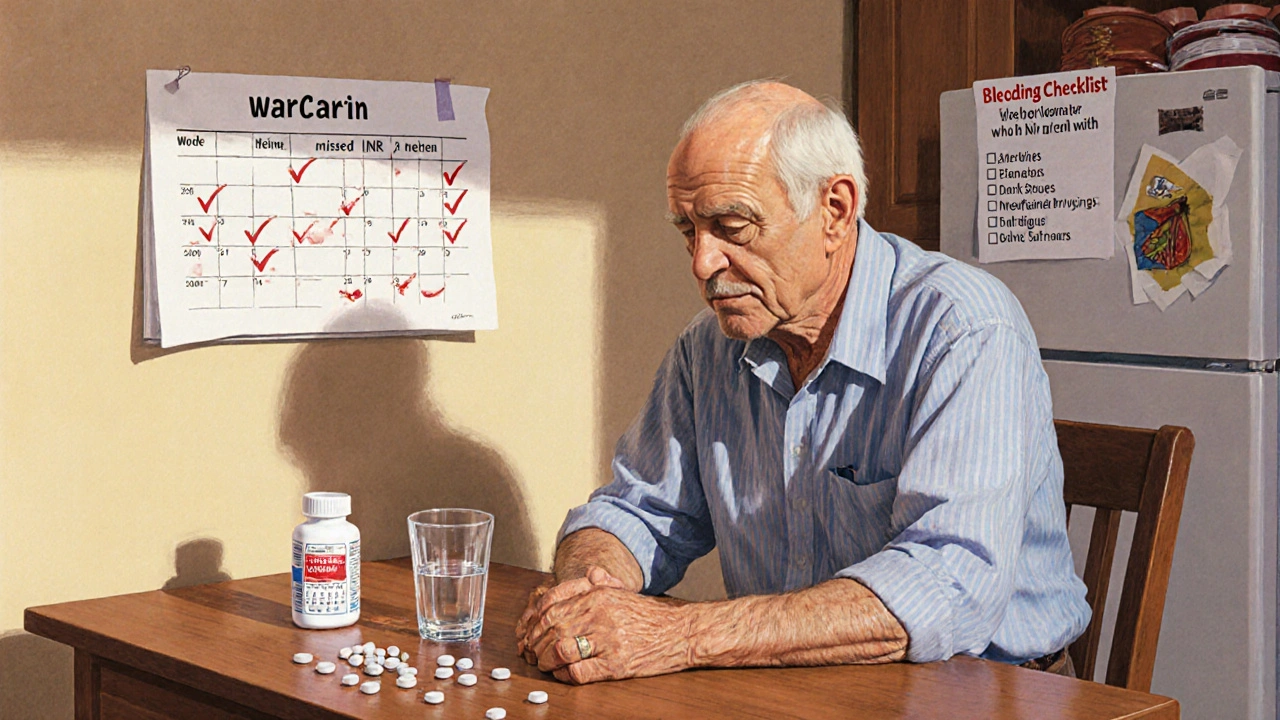Warfarin Overdose: Signs, Risks, and What to Do
When you take warfarin, a blood thinner used to prevent dangerous clots. Also known as Coumadin, it saves lives—but too much can turn it into a silent danger. Warfarin overdose doesn’t happen with one missed dose. It builds slowly, often without warning. You might feel fine until you notice unexplained bruising, nosebleeds, or blood in your urine. That’s when the real risk hits.
What makes warfarin tricky is how sensitive it is. A change in diet—like eating more spinach or kale—can throw off your dose. So can antibiotics, painkillers, or even herbal supplements like ginseng or garlic. Your INR level, a blood test that measures how long it takes your blood to clot is your only real guide. Doctors aim for an INR between 2 and 3 for most people. Go above 4.5, and your risk of internal bleeding jumps. Above 9? That’s a medical emergency.
Some people don’t realize they’ve overdosed until they fall, hit their head, or have surgery. Even a minor bump can cause dangerous bleeding inside the skull or gut. Older adults, people with kidney or liver problems, and those on multiple meds are at higher risk. And yes—alcohol, even in small amounts, can make warfarin stronger. It’s not about being careless. It’s about how easily small changes add up.
What should you do if you suspect an overdose? Don’t wait for symptoms. If you took too much, call your doctor or poison control right away. If you’re bleeding heavily, go to the ER. Hospitals can give you vitamin K to reverse the effect, or even fresh frozen plasma if it’s serious. But prevention beats treatment every time. Keep a log of your doses. Track what you eat. Tell every new doctor you’re on warfarin—even your dentist. And never change your dose without checking in first.
The posts below give you real-world insights into how warfarin interacts with other drugs, what foods to watch out for, how to monitor your health safely, and what to do when things go wrong. You’ll find clear advice on avoiding dangerous combinations, understanding your lab results, and staying in control—even when life throws curveballs. This isn’t theory. It’s what people actually need to know to stay safe.

Blood Thinner Overdose and Internal Bleeding: What to Do Immediately
Blood thinner overdose can cause silent, life-threatening internal bleeding. Learn the warning signs, what to do immediately, how doctors treat it, and how to prevent it from happening.
view more